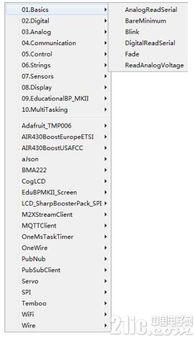Understanding Your Air Conditioning Energy Consumption: A Comprehensive Guide
Are you curious about how your air conditioning system impacts your energy bills? Do you want to make informed decisions to reduce your energy consumption and save money? Look no further! This article will delve into the various aspects of air conditioning energy consumption, providing you with the knowledge to optimize your system’s efficiency.
How Air Conditioning Works

Before we dive into the details of energy consumption, it’s essential to understand how air conditioning systems work. Air conditioners remove heat from the air inside your home and expel it outside, creating a cooler environment. This process involves several components, including the compressor, condenser, evaporator, and expansion valve.
| Component | Description |
|---|---|
| Compressor | Pumps refrigerant through the system, increasing its pressure and temperature. |
| Condenser | Releases heat from the refrigerant, cooling it down and condensing it into a liquid. |
| Evaporator | Extracts heat from the air inside your home, cooling it down and dehumidifying it. |
| Expansion Valve | Regulates the flow of refrigerant into the evaporator, maintaining the desired cooling effect. |
Energy Consumption Factors

Several factors influence the energy consumption of your air conditioning system. Understanding these factors can help you identify areas for improvement and reduce your energy bills.
- Size of the Air Conditioner: A properly sized air conditioner is more efficient than one that is too large or too small. An oversized unit will cycle on and off frequently, leading to inefficient operation. Conversely, an undersized unit will struggle to cool your home, resulting in increased energy consumption.
- SEER Rating: The Seasonal Energy Efficiency Ratio (SEER) is a measure of an air conditioner’s efficiency. Higher SEER ratings indicate greater energy savings. Look for a SEER rating of 14 or higher for new units.
- Age of the System: Older air conditioning systems are typically less efficient than newer models. If your system is more than 10 years old, consider upgrading to a more energy-efficient unit.
- Location and Orientation: The placement of your air conditioner and the orientation of your home can affect its energy consumption. Ensure that your unit is in a shaded area and that it’s not exposed to direct sunlight or heat from other sources.
- Insulation and Sealing: Proper insulation and sealing of your home can significantly reduce the workload on your air conditioner, leading to lower energy consumption.
- Usage Patterns: The frequency and duration of use can impact your energy consumption. Use your air conditioner wisely and adjust the temperature when you’re not home or when you’re sleeping.
Energy-Saving Tips

Implementing the following tips can help you reduce your air conditioning energy consumption:
- Adjust the Thermostat: Set your thermostat to a higher temperature during the day and lower it when you’re home. A few degrees can make a significant difference in energy consumption.
- Use a Programmable Thermostat: A programmable thermostat allows you to set different temperatures for different times of the day, ensuring that your home is comfortable when you’re home and not consuming energy when you’re not.
- Seal Air Leaks: Inspect your home for air leaks and seal them with weatherstripping or caulk. This will prevent cool air from escaping and reduce the workload on your air conditioner.
- Use Fans: Ceiling fans and portable fans can help circulate cool air throughout your home, reducing the need for your air conditioner to work as hard.
- Plant Trees and Shrubs: Planting trees and shrubs around your home can provide shade and reduce the amount of heat that enters your home.
- Regular Maintenance: Schedule regular maintenance for your air conditioning system to ensure it operates efficiently. This includes cleaning or replacing filters, checking refrigerant levels













